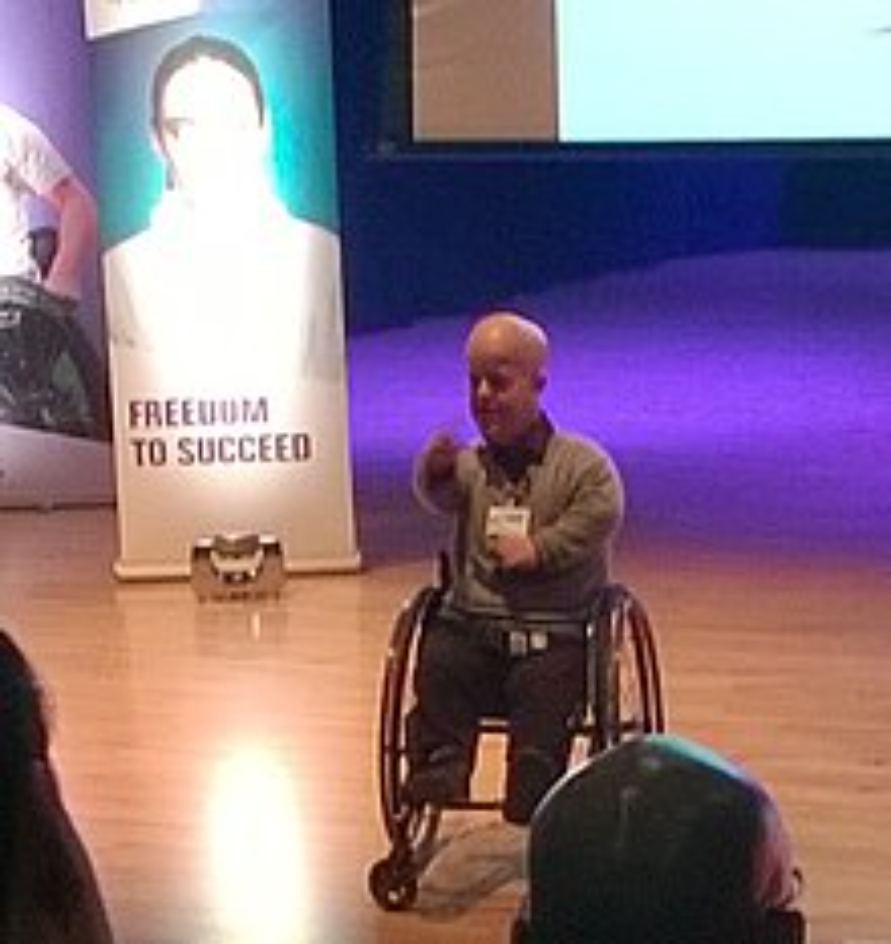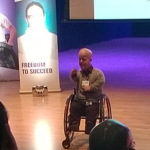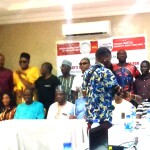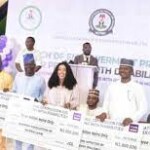Tom Shakespeare, a British social scientist, bioethicist and expert in disabilities speaks with Gbenga Ogundare on inclusion and assistive technology at the University of East Anglia lecture in the UK.
Inclusive education is not working in Nigeria and other Low-Middle Income Countries (LMICs) as your evidence-based research confirms. Maybe incomes determine this since it works in High Income Countries (HICs). Based on your works, when do you think Africa’s children with disabilities will benefit from the policy?
More disabled children are getting access to education, in Nigeria as well as the rest of Africa. This is good, because to lack education is to be excluded from any modern economy. Income certainly is relevant: good teachers, cost money; accessible materials, cost money; transport to school, costs money. But you would be wrong to conclude "Inclusion works in HIC". It is difficult everywhere. I want all children with disability to get good education. I do not mind so much whether it is inclusive or not - although that is certainly desirable. I hope bit by bit, there will be better schools; better trained and paid teachers; more inclusive materials; better transport to school; more support for disabled students at University.
Assistive technology faces many challenges in Africa, including production, lack of national policies, exclusion of PWDs from the delivery process, and others. Production seems the biggest because it still depends on the HICs. How can Africa be sure the AT industry in the West is ready to help even if policies and others are in place?
I am not an expert on AT. In some cases, economies of scale mean that mass production is cheapest. I am thinking of bicycles and wheelchairs. In some cases, we need to invest in local production skills. I am thinking of prosthetics and orthotics. We need to train people to have the right skills: to make and fit AT. The answer is not to have a large medical supplies sector, as in HIC, because that reliance on the profit motive does not benefit disabled people.
You worked in the media for years, especially on the BBC ‘Story-Story’ for Nigeria. And you once commended the instant feedback the media offers—compared to books’ ‘slow-burn’ response. So what was the feedback like then on the radio drama?
We did discuss a RCT on the disability elements proposed for Story-Story, but we could not make that work, so I do not have data on the impact.
The entertainment industry stereotypes people with disabilities—when they cast them at all. In Nollywood, people with no disabilities take on roles of PWDs. It seems it’s about the medium determining the casting. What’s your view?
I don't think this has to be true. Slowly, there are more roles for disabled actors. I am thinking of Breaking Bad, or Game of Thrones, or the BBC efforts in the UK. We do more to train actors with disabilities, and to sensitise writers and producers.
You’ve done a lot of works on evidence-based disability advocacy. What was the inspiration when you started?
I think we rely on many obvious things - such as the disability employment quota. Yet I think we lack evidence in international development that all these things work. We need to gather the evidence and chose the approach that has a good evidence base. I was inspired by working at WHO for five years, and helping write the 2011 World report on disability.
You have discovered many disability rights charters, innovations, and policies are not working, especially in LMICs. One can infer from your work that disability issues are after-thoughts most of the time. What else can be done in Africa to make disabilities part of the continent’s realities?
More awareness raising; better evidence; more people with disabilities as role models.
In the course of your disability works across LMICs, what common thread did you identify, and how does that run through most of them?
I would refer you to my previous answer! I would also say that religion plays much more of a role in LMICs than HICs. Mostly, we do not take enough account of that.
What did you find out about disabilities in Nigeria, in particular?
Sadly, I have not yet been to Nigeria, nor am I an expert on disability in your country specifically. But I suspect it's the same as other parts of Africa. It's not just about having the right laws. We need to change hearts and minds. We need to dismantle the idea that people with disabilities cannot achieve anything, by showing everything we have done, and continue to do.
Suggested:
Common Threat to Disability Governance across Nigeria, others, Neglected—British Disability Expert
16 Jan, 2023
16 mins read

Related posts
Disability Not yet a Front-burner Conversation—LASODA Boss Adenike
17 Jan, 2025
4 mins read
LG Disability Policy Framework: Good to strike while the Iron is Hot - Adebayo
13 Dec, 2024
4 mins read
Follow us
Categories
C
Latest Post
L
We use cookies on our website to give you the most relevant experience by remembering your preferences and repeat visits. By clicking “Accept”, you consent to the use of ALL the cookies
Cookie Policy






